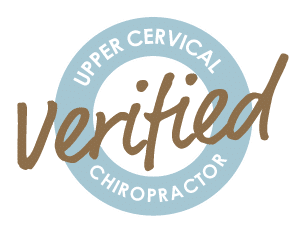If you’re exploring the benefits of upper cervical chiropractic care, you may likely wonder how you’ll feel after an adjustment.
For example, you may ask if you’re supposed to feel sore after a chiropractic adjustment. The simple answer to this is yes.
It’s very normal to feel sore after a chiropractic adjustment. Nonetheless, the reason you’re feeling sore is unique for every person.
To better understand why you may be sore, check out the following reasons explaining soreness after an adjustment below!
Possible Reasons You’re Sore After Chiropractic Adjustment
1. Understimulated Muscles are Roused
One of the first steps in your treatment plan is your initial adjustment. Feeling sore after this adjustment is normal for patients. Once a correction has been made to your spine, you’re changing what muscles are active and which aren’t.
For example, think about this correction in comparison to exercising. If you do the same exercises every day, you will only use certain muscles while other muscles aren’t being used. The same can be said for your muscles after a correction.
Essentially, through this correction, you are stimulating inhibited, or inactive, muscle groups to bring balance to your body. This can cause some soreness in these muscles for a short time after a correction.
2. Overstimulated Muscles are Balanced
On the other hand, when bringing balance to your muscle use, the muscles that are overstimulated will be used less. In this case, you may not feel much soreness in these overstimulated muscles.
In fact, with muscles that are overstimulated, you’re more likely to feel relief after a correction. While some soreness can come from these muscles, a majority of your soreness will come from your understimulated muscles being used more often.
3. Your Body is Adjusting to Proper Alignments
By and large, your body wants to be in alignment. Think of the analogy of going to the dentist to get braces. After attaching braces, your teeth begin to adjust to the right position. This adjustment makes your mouth sore.
Thus, getting your spine in alignment is much like the above example of using braces to align your teeth. Your body may be used to being out of alignment.
So, when your spine is back in alignment, it will take some getting used to, which may cause you to feel sore. This is why it’s important to maintain your recommended treatment plan to hold your correction long-term.
4. You’ve Been in Misalignment a Long Time
If you’ve had a misalignment or subluxation, there’s a chance your body has adapted to the misalignment. In fact, you may not even feel pain while experiencing a misalignment!
The reason for this possible lack of pain is due to only one-third of the nerves in your neck producing pain. However, just because you don’t feel pain from a misalignment, it doesn’t mean that damage is not being caused to your body.
All in all, the longer you’re misaligned, the more likely you are to experience post-appointment soreness.
Suggestions for Soreness After Chiropractic Adjustment
There are numerous reasons as to why you’re sore after a correction. All in all, this soreness is just like any other muscle soreness you’ve felt before. Thankfully, that means dealing with this soreness isn’t complex!
After an adjustment, if you’re sore, it is likely to last about 24-48 hours. If this soreness is from your adjustment, one of the best ways to treat it is with moist heat.
By applying moist heat to your sore muscles, you let your joints and muscles relax more. Another way to help soreness is through an Epson salt bath. This is a great way to help your muscles relax before heading off to bed.
In the end, if your chiropractor has any tips for dealing with soreness, make sure to follow their suggestions. Plus, it never hurts to tell your chiropractor about anything you’re feeling after an adjustment to make sure your treatment plan continues to benefit you!
To help your body be its healthiest, take advantage of the complimentary consultation that Begin Within offers patients.
For more information about how Begin Within can help you, contact their office at (480) 699-3086!
